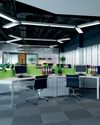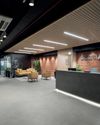
First and foremost, hotels are complex structures comprising multi-vendor units such as HVAC, lighting systems, plumbing fixtures, central boilers, guest room management systems, security and access control, building management systems, etc. And since the industry is predominantly service-driven, there is no room for compromises in any system. Furthermore, the industry is increasingly coming under scrutiny for its resource-intensive nature. So, with technology adoption and implmentation, hospitality professionals are hoping to optimise energy usage, guest experiences, and routine operations, while reconciling these with long-term ROI and incremental savings. Here are five ways these multi-fold objectives are achievable through smart property solutions.
1. Vendor-agnostic integration: The cornerstone of smart hospitality is the IoT- led integration of all systems and functions, irrespective of vendor lock-ins and licenses. Enterprise-grade solutions will seamlessly integrate multivendor systems, creating an open-protocol ecosystem and centralising the control under one roof. Operators can thus perform real-time monitoring and commissioning. The single-window visibility into hotel-wide systems and processes will enable operators to give timely alerts, optimise workflows, and streamline operations of all — kitchen, administrative, and housekeeping — staff.
Bu hikaye Commercial Design dergisinin February 2022 sayısından alınmıştır.
Start your 7-day Magzter GOLD free trial to access thousands of curated premium stories, and 9,000+ magazines and newspapers.
Already a subscriber ? Giriş Yap
Bu hikaye Commercial Design dergisinin February 2022 sayısından alınmıştır.
Start your 7-day Magzter GOLD free trial to access thousands of curated premium stories, and 9,000+ magazines and newspapers.
Already a subscriber? Giriş Yap

WORKING TOGETHER
Professor Louise Valentine, Head of the Design School at Heriot-Watt University, on the importance of inclusive design in the workplace

WHERE CREATIVITY WORKS
Alhad Gore of Beyond Design Architects & Consultants brings his architectural expertise to life in the new office for Atul Patel Architects, blending functionality with creative flair to craft a workspace that inspires innovation and collaboration

FACILITATE INTELLIGENCE
How AI is redefining the future of facility management

DESIGNING A BETTER FUTURE
How inclusive office designs are shaping the modern workspace

ADDED VALUE
Is a good project manager the secret to success for a complex commercial design project?

RECOGNISING EXCELLENCE ACROSS THE SPECTRUM
The Grand Jury Meet of the third edition of Commercial Design Awards, a cornerstone event in India’s commercial design landscape, unfolded amidst the awe-inspiring expanse of the Welspun Global Carpet Plant in Hyderabad.

A VISION FOR 'TOTAL BUSINESS ECOSYSTEMS'
Jitu Virwani, Chairman and Managing Director of Embassy Group, redefines India's commercial real estate landscape by pioneering integrated, future-ready, and sustainable business ecosystems.

AWFIS TO DESIGN, MANAGE 165K SQ FT OFFICE SPACE FOR NSE IN MUMBAI
Awfis Space Solutions Limited on Tuesday said it will design and manage 1.65 lakh square feet of office space in Mumbai for the National Stock Exchange.

MACROTECH ACQUIRES 2.8 ACRES IN HINJEWADI
Realty developer Lodha, listed as Macrotech Developers, has acquired a 2.8acre plot of land in Pune's Hinjewadi area from Paranjape Schemes.

EMBASSY OFFICE PARKS REIT APPOINTS RITWIK BHATTACHARJEE AS INTERIM CEO
Embassy Office Parks REIT on Thursday appointed Ritwik Bhattacharjee as its interim Chief Executive Officer (CEO) with immediate effect, following Sebi’s order to suspend its CEO Arvind Maiya.